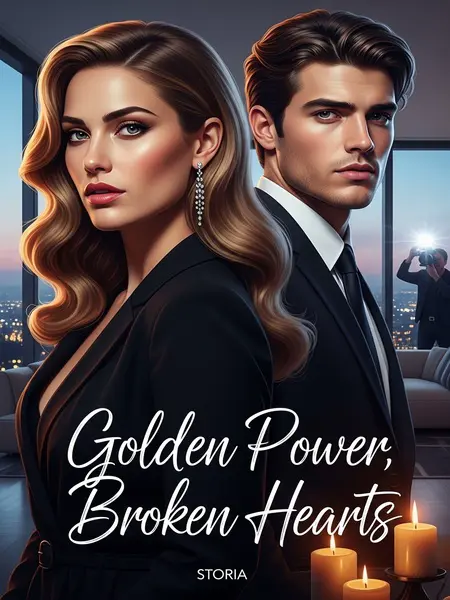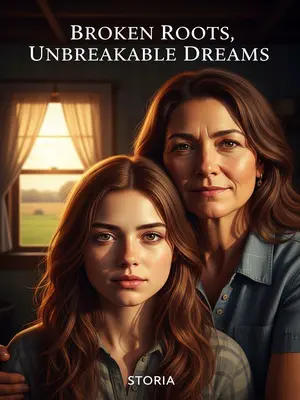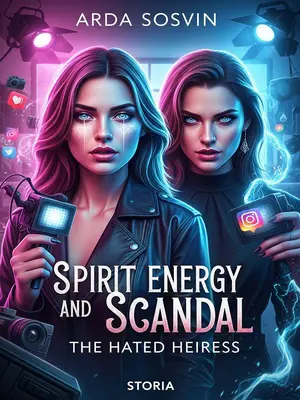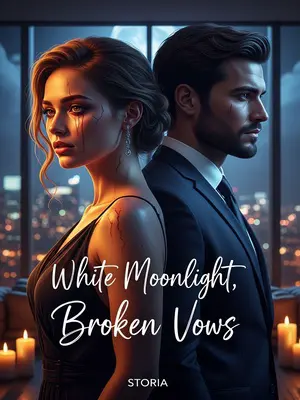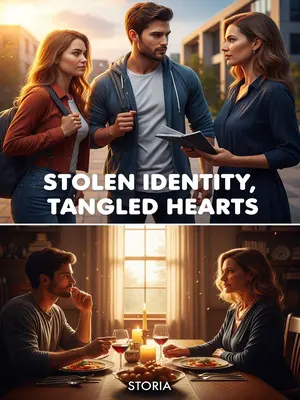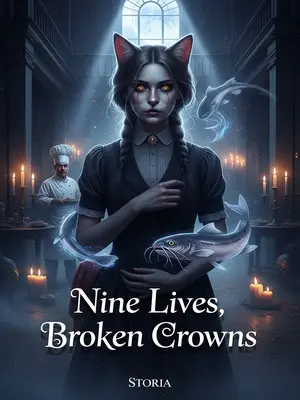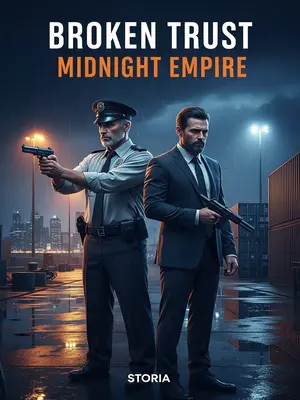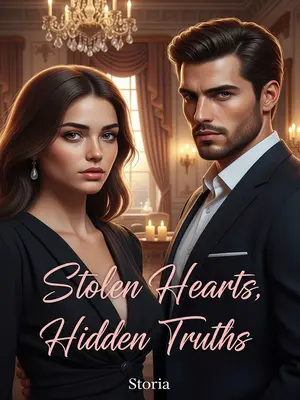Chapter 1: The Queen Bee and the Unknown Star
When I first set my sights on Julian Reeves, he wasn’t famous yet, but I was already known around the industry as the "Queen Bee."
That nickname? It started as a meme online—one of those internet things that sticks, whether you like it or not. At first, people tossed it around as a joke, sometimes with a smirk, sometimes with a little side-eye. Eventually, it leaked into real life: parties, industry events, even whispered in the halls. Not a compliment at first, but I took it anyway. There’s something about a nickname like that—it makes you sound untouchable. I pretended it didn’t matter, but honestly? I kind of loved it.
Back then, all the bored trust fund kids in my orbit were getting into showbiz. With nothing better to do, I jumped in too. And because I had more connections than sense, the snarky crowd online went for my throat with every insult they could invent.
It became their favorite sport—dissecting my every move. Spoiled, shallow, a nepotism baby with nothing but a famous last name and an unlimited credit card. Sometimes I’d scroll through the hate, half-amused, half-annoyed, but never letting it get under my skin. Not really. I knew who I was, even if they didn’t.
Then someone snapped a shot of me behind the wheel of a Bugatti Chiron, and from that car, they Sherlock’d my net worth and family background in record time.
After all, there are only a handful of those million-dollar supercars in the world. It’s not like you can just roll up to a dealership and drive one off the lot. The second that photo hit Twitter—and Reddit threads too, honestly—people went full detective, connecting dots, building family trees, sleuthing through every corner of the internet. It was almost impressive, the way they obsessed over me.
Once the internet’s shock wore off, their attitude flipped completely. Suddenly, everyone was calling me “sis,” like we’d always been best friends, as if they hadn’t just spent weeks dragging me through the mud.
It cracked me up, honestly. One day I was the villain, the next I was their aspirational big sister. I watched the comments roll in—"Queen, drop your skincare routine!" "Sis, adopt me!"—and just shook my head. People are fickle, but online? That’s a whole new level.
I scrolled through the comments, got bored, and slipped out of the spotlight.
Honestly, I’d rather be the money behind the scenes than the one in front of the camera. There’s something so satisfying about pulling the strings, making things happen, and never having to fake a smile for the paparazzi. I liked the power, the freedom, the feeling that I could make or break a project with a single phone call.
Maybe it was my good taste, maybe just luck, but with all my resources and a knack for picking scripts and actors, I ended up doing better than I ever expected. Even when I was young, I played the capital game like a pro.
It was a rush. I was always the youngest in the boardroom, the one who could spot a hit before anyone else. I’d stroll into meetings in designer sneakers and vintage tees, and the old guys in suits would underestimate me—right up until the numbers dropped.
Later, at every kind of industry dinner, agents would bring their clients over to say hi, hoping to get on my radar.
There were men and women, but the tabloids and gossip blogs only ever published shots of me with male celebrities, spinning the stories wild. Same old blurry photos, same tired headlines, a thousand comments speculating about my love life. I let them talk. If I spent my time fighting rumors, I’d never get anything done.
It was always the same—me, some actor, a flashbulb, and the world making up whatever story they wanted. I couldn’t be bothered to care and never explained anything.
At some point, the internet started calling me “Queen Bee,” saying Hollywood was my personal playground.
Some joked, Queen Bee isn’t here to build a career—she’s here to collect a roster. I mean, why not? If you can’t beat the rumors, own them.
Because of that, fans of every male star in the industry had a love-hate relationship with me.
They loved me because I had killer connections and could launch their idols’ careers into the stratosphere.
They hated me because they were terrified I’d take a liking to their idol, get caught up in rumors, and tank his reputation and future.
It was a weird kind of power. I could make someone a star, but I could also be the reason their fans lost sleep at night. I got used to it. Truth is, I never actually touched any of the male stars I was rumored with.
Except for Julian Reeves.
The first time I saw Julian, I was instantly interested.
No other reason—he was just exactly my type. He’d just debuted and came with his agent to raise a glass.
The place was buzzing. I looked at him, and suddenly that old poem line popped into my head: He stood out in any crowd—unreal, almost unfair.
His agent smiled and introduced him: “Ms. Monroe, this is Julian Reeves, our new client. We hope you’ll keep an eye out for him.”
“Julian Reeves.” I lowered my head, repeated his name, then looked up, smiled, and proactively raised my glass. “That’s a good name.”
His agent was thrilled. I rarely paid attention to introductions—if I was willing to drink, it meant I was interested.
His agent nudged him forward. He had no choice but to step up, looking distant and cold. His dark eyes met mine, steady and proud. His voice was cool, with a hint of ice: “Ms. Monroe, here’s to you.”
With that attitude, as if I were some dangerous animal, I couldn’t help but smile and finished my wine.
There was something about the way he held himself, like he was daring me to make the first move. Most people in this business would kill for my attention, but Julian looked at me like he was sizing me up, not impressed, not intimidated. I liked that.
Later, he drove me home.
He drove steadily and quietly, not saying a word. I sat in the passenger seat, watching his profile in the passing streetlights—smooth lines, long lashes, sharp jaw. Hollywood is full of good-looking men, but someone as striking as him is rare.
For some reason, I suddenly wondered—could his eyelashes hold up a pen?
It was a silly thought, but I couldn’t help myself. The city lights flickered by, and I found myself staring, almost mesmerized. I’d seen plenty of beautiful faces, but his had something else—a kind of gravity, a pull I couldn’t ignore.
When the car stopped at my high-rise apartment, I couldn’t help myself and reached out to touch his lashes.
My reputation in the industry wasn’t great, but I swear, I rarely acted this forward.
But before my hand got halfway to his face, he somehow sensed it and grabbed my wrist. He squeezed—sharp enough to sting. I didn’t say anything, just held his gaze.
He turned his head, meeting my eyes, cold and distant. I thought he must have misunderstood, because his tone was firm: “Ms. Monroe, please show some respect.”
I was stunned for a second—right, of course—then burst out laughing.
I pulled my hand back, didn’t explain—just smiled and asked, “Then why were you willing to drive me home?” No point in over-explaining.
His voice was calm, as if it was the most obvious thing in the world: “You’re a woman. It’s not safe at night.”
That made me genuinely laugh.
A woman, needing protection—okay, chivalry. In outsiders’ eyes, I’m the untouchable Queen Bee of Hollywood, everyone sucking up to me, hoping for a scrap of my connections.
But he just said, “You’re a woman. It’s not safe at night.” He really said it like a given—how quaint.
In the end, before he left, I called his name. He turned to look at me under the garage light, his features sharp, tall and straight like marble. I smiled at him. “Julian, goodnight.”
He nodded politely. “Goodnight.”
The next day, I visited the set where Julian was filming. When he glanced over, I smiled at him.
People on set shot us looks, gossip swirling. I ignored it, smiling confidently. “Look, Julian, we meet again.”
He just looked cold and said nothing.
After that, the whole industry knew I’d taken a liking to Julian Reeves.
Some friends gossiped, asking why I liked him.
